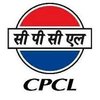Chemical Engineer
50+ Chemical Engineer Interview Questions and Answers

Asked in UPL

Q. Q. How is pump power calculated for pump impeller dia change? ( hint: affinity law) Q. Heat exchanger design ( hint: kern method) and types of HE Q. Change in dia of column if column is run under pressure and v...
read morePump power is calculated using the affinity law, heat exchanger design involves Kern method, and column diameter changes under pressure and vacuum.
Pump power is calculated using the affinity law formula: P2/P1 = (N2/N1)^3 * (D2/D1)^5
Heat exchanger design involves using the Kern method to determine the heat transfer area and overall heat transfer coefficient
Types of heat exchangers include shell and tube, plate heat exchangers, and double pipe heat exchangers
When a column is r...read more

Asked in Chevron

Q. Describe a technical problem you encountered and how you solved it.
I encountered a technical problem while working on a chemical process optimization project.
During the project, I faced a challenge with a reactor that was not achieving the desired conversion rate.
I conducted a thorough analysis of the process parameters and identified a potential issue with the catalyst.
To confirm my hypothesis, I performed various tests and experiments to evaluate the catalyst's performance.
Based on the results, I determined that the catalyst had lost its a...read more
Chemical Engineer Interview Questions and Answers for Freshers

Asked in Technip Energies

Q. If you blow up a balloon, why does it violate Boyle's Law?
Blowing a balloon violates Boyle's Law because the pressure inside the balloon increases as the volume decreases.
Blowing air into a balloon increases the pressure inside the balloon.
Boyle's Law states that at constant temperature, the pressure of a gas is inversely proportional to its volume.
By blowing air into the balloon, the volume decreases while the pressure increases, violating Boyle's Law.

Asked in Technip Energies

Q. What equation is used for transporting fluid from one place to another?
The equation commonly used for transporting fluid from one place to another is the Bernoulli's equation.
Bernoulli's equation relates the pressure, velocity, and height of a fluid along a streamline.
It is commonly used in fluid mechanics to analyze the flow of fluids in pipes, pumps, and other systems.
The equation is: P + (1/2)ρv^2 + ρgh = constant, where P is pressure, ρ is density, v is velocity, and h is height.
It helps in understanding the energy balance of a fluid as it m...read more

Asked in IG Petrochemicals

Q. what is loops. what is DCS. Dcs use in chemical industries
Loops are sequences of instructions that are repeated until a certain condition is met. DCS stands for Distributed Control System, used in chemical industries for monitoring and controlling processes.
Loops are used in programming to repeat a block of code until a specific condition is met.
DCS is a control system used to monitor and manage industrial processes, such as in chemical plants.
DCS allows for centralized control of multiple control loops and process units.
Examples of...read more

Asked in Technoforce Solutions

Q. What is the method for calculating the heat transfer area?
Calculating heat transfer area involves using formulas based on heat transfer coefficients, temperature differences, and overall heat transfer.
Basic Formula: A = Q / (U * ΔT), where A is the heat transfer area, Q is the heat transfer rate, U is the overall heat transfer coefficient, and ΔT is the temperature difference.
Example: For a heat exchanger with Q = 5000 W, U = 200 W/m²K, and ΔT = 50 K, the area A = 5000 / (200 * 50) = 0.5 m².
Log Mean Temperature Difference (LMTD): Fo...read more
Chemical Engineer Jobs




Asked in Alkyl Amines

Q. What is the role of chemical engineering in the chemical industry?
Chemical engineering plays a crucial role in the chemical industry by designing processes, optimizing production, and ensuring safety and efficiency.
Designing and optimizing chemical processes for production
Developing new materials and products
Ensuring safety and environmental compliance
Improving efficiency and reducing costs
Troubleshooting and problem-solving in production
Collaborating with other engineers and scientists

Asked in Technoforce Solutions

Q. What is the design process for a distillation column?
The design process for a distillation column involves several steps to ensure efficient separation of components based on volatility.
Define Separation Requirements: Determine the desired purity and recovery of the components to be separated, such as separating ethanol from water.
Select Distillation Type: Choose between continuous or batch distillation based on the process needs; for example, continuous for large-scale operations.
Determine Operating Conditions: Establish tempe...read more
Share interview questions and help millions of jobseekers 🌟


Asked in Aarti Industries

Q. What are your thoughts on Aarti Industries as a potential employer?
Aarti Industries is a leading company in the chemical industry with a strong reputation for innovation and growth.
Aarti Industries is known for its diverse product portfolio, including specialty chemicals, pharmaceuticals, and agrochemicals.
The company has a strong focus on research and development, offering opportunities for career growth and learning.
Aarti Industries has a global presence, providing exposure to international markets and opportunities for cross-cultural coll...read more

Asked in Aarti Industries

Q. ETP unit BDT unit in petroleum refining
ETP unit BDT unit is a part of petroleum refining process.
ETP stands for Effluent Treatment Plant.
BDT stands for Biological Desulfurization Tower.
ETP unit is responsible for treating and purifying the wastewater generated during the refining process.
BDT unit is used for removing sulfur compounds from the petroleum products.
Both units play a crucial role in ensuring environmental compliance and producing high-quality petroleum products.

Asked in Technip Energies

Q. What are the assumptions of Bernoulli's equation?
Assumptions of Bernoulli's equation in fluid dynamics
Incompressible flow (density is constant)
Steady flow (velocity does not change with time)
No viscous effects (no friction losses)
No heat transfer (adiabatic process)
Flow along a streamline (no cross-flow mixing)
Potential flow (irrotational flow)
Negligible changes in elevation (no significant height differences)

Asked in Zydus Lifesciences

Q. What is Bernoulli's equation?
The Bernoulli equation relates the pressure, velocity, and elevation of a fluid in a moving streamline.
The Bernoulli equation is P + 1/2 * rho * v^2 + rho * g * h = constant
P represents the pressure of the fluid
rho is the density of the fluid
v is the velocity of the fluid
g is the acceleration due to gravity
h is the height of the fluid above a reference point
The equation is based on the principle of conservation of energy for flowing fluids

Asked in Honeywell Automation

Q. What is the PSV case scenario related to columns?
PSV case scenarios in columns involve pressure safety valves to prevent overpressure and ensure safe operation.
PSV stands for Pressure Safety Valve, crucial for protecting columns from overpressure.
In distillation columns, PSVs prevent damage from vapor pressure exceeding design limits.
Example: If a column experiences a sudden temperature rise, the PSV opens to release excess pressure.
Regular maintenance and testing of PSVs are essential to ensure reliability during emergenci...read more

Asked in Thermax Limited

Q. What is the mean Residence Time (RT) in a wastewater treatment plant?
RT in wastewater treatment plant refers to the retention time, which is the amount of time wastewater remains in a treatment system.
RT is a critical parameter in wastewater treatment plants as it determines the efficiency of the treatment process.
It is calculated by dividing the volume of the reactor by the flow rate of influent wastewater.
A longer retention time allows for more thorough treatment of contaminants in the wastewater.
Shorter retention times may result in incompl...read more

Asked in Chevron

Q. Why are you interested in working in a refinery?
I am interested in refineries because of their crucial role in the production of various petroleum products.
Fascinated by the complex processes involved in refining crude oil into usable products
Passionate about contributing to the development of cleaner and more efficient refining technologies
Excited about the opportunity to work with a diverse range of chemicals and processes
Interested in the challenges of optimizing refinery operations to maximize output and minimize envir...read more

Asked in Technip Energies

Q. How do you calculate pump suction head?
Pump suction head is calculated by adding the atmospheric pressure, the vapor pressure of the liquid being pumped, and the elevation difference between the pump and the liquid source.
Calculate the atmospheric pressure at the pump location
Determine the vapor pressure of the liquid being pumped
Find the elevation difference between the pump and the liquid source
Add the atmospheric pressure, vapor pressure, and elevation difference to get the pump suction head

Asked in Honeywell Automation

Q. What are the criteria for sizing control valves?
Sizing control valves involves flow requirements, pressure drop, and valve characteristics for optimal performance.
Determine the flow rate: Calculate the required flow rate in GPM or L/min based on the process needs.
Assess pressure drop: Evaluate the allowable pressure drop across the valve to ensure efficient operation.
Consider fluid properties: Analyze the type of fluid (liquid, gas, or vapor) and its characteristics (density, viscosity).
Select valve type: Choose between gl...read more

Asked in SRF

Q. What is distillation?
Distillation is a process of separating components of a mixture based on their boiling points.
It involves heating the mixture to vaporize the component with the lowest boiling point.
The vapor is then condensed and collected as a separate liquid.
This process can be used to purify liquids, separate different components of a mixture, and extract desired substances from natural sources.
Examples include the production of ethanol from fermented grains, the separation of crude oil i...read more

Asked in UPL

Q. Have you worked on the commissioning of any chemical projects?
Yes, I have experience in commissioning chemical projects.
I have worked on commissioning a chemical plant for a new production line
I was involved in the startup and testing of equipment to ensure proper functioning
I collaborated with a team of engineers to troubleshoot any issues that arose during commissioning

Asked in Bodal Chemicals

Q. What do the first two laws of thermodynamics tell us?
The two laws of thermodynamics are the first law, which states that energy cannot be created or destroyed, only transferred or converted, and the second law, which states that the entropy of an isolated system always increases over time.
First law of thermodynamics: Energy cannot be created or destroyed, only transferred or converted.
Second law of thermodynamics: The entropy of an isolated system always increases over time.
The first law is often summarized as 'energy conservat...read more

Asked in Jubilant Ingrevia

Q. What is HIRA and how does it relate to the process?
HIRA stands for Hazard Identification and Risk Assessment. It is a process used to identify potential hazards and assess the associated risks in a workplace or project.
HIRA involves identifying hazards, evaluating the risks associated with those hazards, and implementing control measures to mitigate the risks.
The process typically includes hazard identification, risk assessment, risk control, and monitoring and review.
Examples of hazards that may be identified in HIRA include...read more

Asked in Schlumberger

Q. Purpose of distillation colum Feedback vs feedforward
Distillation column separates components in a mixture based on differences in boiling points.
Distillation column is used to separate components in a mixture based on differences in boiling points.
Feedback control adjusts operating conditions based on output to maintain desired separation efficiency.
Feedforward control predicts disturbances and adjusts operating conditions proactively to maintain separation efficiency.
Examples of feedback control in distillation column include...read more

Asked in Chevron

Q. Do you have any plans for further studies?
Yes, I have plans for further studies to enhance my knowledge and skills in chemical engineering.
I am considering pursuing a master's degree in chemical engineering to specialize in a specific area of interest.
I am also interested in attending workshops and conferences to stay updated with the latest advancements in the field.
Continuing education courses and certifications are also on my radar to broaden my skillset.
I believe further studies will not only enhance my career pr...read more

Asked in Cairn Oil

Q. What is chemical reaction engineering?
Chemical reaction engineering is the study of chemical reactions and their design and optimization in industrial processes.
It involves the application of chemical kinetics, thermodynamics, and transport phenomena to design and optimize chemical reactors.
Chemical reaction engineering is used in industries such as petrochemicals, pharmaceuticals, and food processing.
Examples of chemical reactions include combustion, polymerization, and fermentation.
The goal of chemical reaction...read more

Asked in Aurore Life Sciences

Q. What are catalysts and non-catalysts?
A catalyst is a substance that increases the rate of a chemical reaction without being consumed in the process, while a non-catalyst does not participate in the reaction.
Catalysts lower the activation energy required for a reaction to occur
Non-catalysts do not alter the activation energy of a reaction
Examples of catalysts include enzymes, transition metals, and acids
Examples of non-catalysts include solvents and inert gases

Asked in Chennai Petroleum Corporation

Q. What is a diesel hydrotreating unit?
Diesel hydrotreating unit is a process used to remove impurities from diesel fuel through hydrogenation.
Diesel hydrotreating unit uses hydrogen to remove sulfur, nitrogen, and other impurities from diesel fuel.
The process involves passing the diesel fuel over a catalyst in the presence of hydrogen gas.
The catalyst helps to break down the impurities into simpler, more stable compounds.
The treated diesel fuel has improved quality in terms of sulfur content, which is important f...read more

Asked in Hindustan Petroleum

Q. Name of different products obtained from refinery
Refineries convert crude oil into various products like fuels, lubricants, and chemicals through distillation and processing.
Gasoline: Used as fuel for vehicles.
Diesel: Fuel for trucks, buses, and machinery.
Jet Fuel: Aviation fuel for aircraft.
Kerosene: Used for heating and lighting.
Liquefied Petroleum Gas (LPG): Used for cooking and heating.
Asphalt: Used in road construction.
Lubricating Oils: Used in engines and machinery.
Petrochemical Feedstocks: Raw materials for chemicals...read more

Asked in IFFCO

Q. What is the theory behind distillation?
Distillation was first described by the ancient Greeks and was further developed by Islamic scholars in the Middle Ages.
Distillation was first mentioned by the ancient Greek philosopher Aristotle.
Islamic scholars such as Jabir ibn Hayyan and Al-Kindi made significant advancements in distillation techniques.
The first detailed description of distillation was provided by the Persian alchemist Muhammad ibn Zakariya al-Razi.
Distillation techniques were further refined by European ...read more

Asked in Ola Electric Mobility

Q. What are the working principles of a Li-Ion battery?
Li Ion batteries work based on the movement of lithium ions between the anode and cathode.
Lithium ions move from the anode to the cathode during discharge and in the reverse direction during charging.
The anode is typically made of graphite, while the cathode is made of a lithium metal oxide.
Electrolytes allow the movement of lithium ions while preventing the direct contact of the anode and cathode.
The separator between the anode and cathode prevents short circuits.
Li Ion batt...read more

Asked in Thermax Limited

Q. How do you calculate sludge waste?
Sludge waste can be calculated by determining the volume or weight of sludge produced and multiplying it by the density of the sludge.
Calculate the volume or weight of sludge produced
Determine the density of the sludge
Multiply the volume or weight by the density to get the total sludge waste
Interview Questions of Similar Designations
Interview Experiences of Popular Companies






Calculate your in-hand salary
Confused about how your in-hand salary is calculated? Enter your annual salary (CTC) and get your in-hand salary


Reviews
Interviews
Salaries
Users










